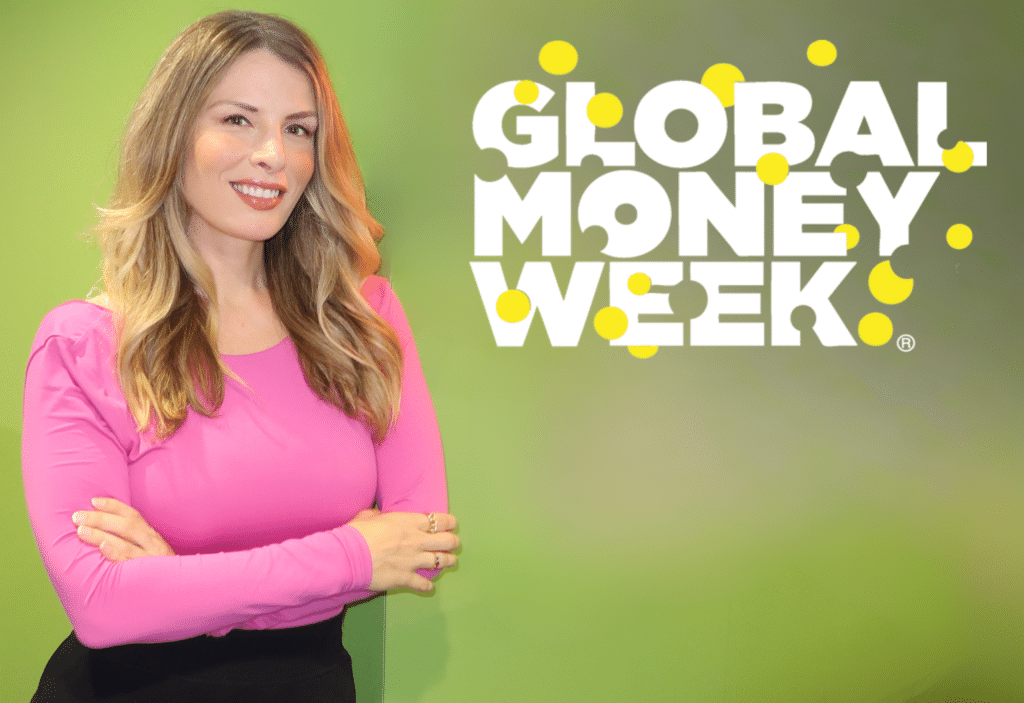Imagine being so targeted by scams that you’ve even got the scammers trying to convince you they’re victims of a scam. That’s what Lisa Wade, CEO of ASX-listed DigitalX (ASX:DCC), has to fight daily amid the explosion of interest in digital investments.
“Usually the scams happen at the inception of the relationship, where the scammer attracts the consumer or attaches to the consumer,” Lisa warns and advises, “Do your research. These scammers are aggressive. They sound legit. They’re really smart.”

As the world heralds another ‘Global Money Week (GMW)’ this year’s focus turns to getting young people financially aware and why women need to pay particular attention this year. Unlike the phantoms behind the International Women’s Day domain GMW runs from 18-24 March 2024 and is an initiative of Child & Youth Finance International (CYFI) now organised by the OECD International Network on Financial Education (OECD/INFE).
Australia’s corporate regulator has backed past events and has already shared content aligning to this year’s theme, “Protect your money, secure your future”.
That’s right, this year is all about putting a spotlight on scams – financial scams and frauds, phishing, money muling and online shopping scams, and risks related to data privacy, such as identity theft. The rise of AI (artificial intelligence) has given birth to new digital financial challenges.
AI threat puts scam alerts on the rise
While artificial intelligence (AI) can be used to bolster security measures and detect fraudulent activity faster, it can also be misused by scammers to create more sophisticated and personalised attacks. Before you consider investing ASIC recommends to check basic facts and ask:
1. Are they licensed – is the company or person licensed by ASIC to advise on or offer this investment?
2. How does it work – can you explain the investment to someone else?
3. Is it real – are there signs of an investment scam?
4. What if something goes wrong – how do you complain?
The nation’s corporate watchdog also provides information on how to report an investment scam, guidance on what to do if you’ve been scammed and an investor alert list. This could not be more important given that scam reports surged by almost 50% in the first half of 2023, according to findings from the Australian Competition and Consumer Commissions (ACCC) Scamwatch.
Women are at risk as they are more likely to be victims of elder fraud, according to US based Women’s Institute for a Secure Retirement. The report says, “women are anywhere from twice to two-thirds as likely as men to be victimised” for a number of reasons including that there are more women than men over age 65 and older women are more likely than older men to live alone and to live in poverty.
Financial literacy: prevention to the problem
Global Money Week is more than just signalling bad news and warnings, it’s about promoting the prevention required before the problem – financial literacy.
“Financial literacy plays a significant role for all Australians, not just to avoid bad decisions but to prepare informed decision-making and maximise returns,” says Australian Shareholders’ Association (ASA) CEO Rachel Waterhouse.
ASA independently educates and advocates Aussie retail shareholders and Rachel oversees a team of volunteers who work to understand financial statements, market trends and risk factors that allows shareholders to make more informed investment decisions.
“There are many levels of financial literacy and seeking out independent resources is vital to ensure you secure the basics but also have the ability to develop more skills,” Rachel says.
To increase financial literacy Rachel recommends:
1. Use independent educational resources: Take online courses or workshop
2. Engage with company communication: Read and analyse annual reports
3. Seek professional guidance: Consult with a financial advisor
Digital boom presents scam risks and solutions
As share markets and cryptocurrencies hit record highs it’s also important to understand how scammers target investors online when it comes to cryptocurrencies. Exploiting hype and fear social media is often leveraged through phishing, Ponzi schemes, fake investment platforms or pump and dump schemes.
“‘KYC’ is the most important thing in the world. It’s know your customer, but know the people that you’re dealing with. And that’s where you just need to deal with credible institutions. You really you can’t validate a scammer because they can’t be validated. That’s why we’re so passionate at DigitalX about validation,” says Lisa Wade.

DigitalX is the only listed bitcoin and digital asset funds management business on the stock exchange and Lisa is also working with the Reserve Bank of Australia to explore how different forms of digital money could support the development of tokenised asset markets. As a CEO of an ASX listed company she has also has to fight off the scammers:
“People pretend to be DigitalX and they open exchanges. I spend at least one day a month getting websites taken down on average. It’s mind blowing. Real people are losing real money,” Wade says.
To ensure it’s not you in the scammers firing line:
1. Do your own research: Always verify the legitimacy of any platform or investment opportunity before committing.
2. Never share your private keys: These are like your password to your crypto holdings; keep them confidential.
3. If it sounds too good to be true, it probably is. Don’t be lured by unrealistic promises of overnight riches.
Global Money Week is all about the importance of adopting a responsible and informed approach to personal finances, by being aware of potential risks in the financial sector and protecting one’s hard-earned money. 120,000,000 people were reached throughout last year’s event and 176 countries have taken part since 2012.
You can take part by taking a moment to consider your own financial literacy, your own personal solutions and protection. It’s time to put a stop to rising scam abuse numbers, pause the trend and send it backwards.

